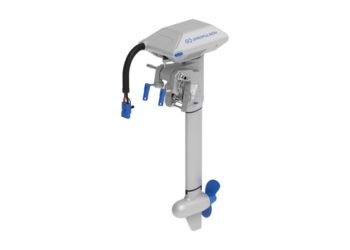The car-buying process may be daunting. Models are absolutely endless, the disparities in prices are gigantic, and selling tricks are so pushy to make a choice. Would you prefer a shiny, new car with the most up-to-date features, or would a used car with a good service history be better, since it will be much cheaper?
Having a margin plan would save you money, and you can relax. The following are the most effective methods of easing your next purchase and improving your shopping experience.
Start with a Realistic Budget
Before you walk into a dealership or peruse some online adverts, you must know how much you can afford. Many buyers consider the sticker price alone and overlook long-run expenses in the form of insurance, fuel costs, taxes, and maintenance. An example of a full cost budget that includes:
Create a full-cost budget that includes:
- Monthly payment or price of the car.
- Frequent servicing and fixing.
- Registration and taxes
In case you are financing, estimate your monthly payments using an online calculator and ensure it does not exceed 15.00% of your monthly income. Still living in your financial comfort zone means that you will still have the car with you, and not be bothered about it.
Check the Vehicle History Report for Used Cars
Never skip this step. A vehicle history report exposes the accidents, title problems, or any form of odometer fraud, your ultimate protection against a lemon. Most of the dealers and online marketplaces also come with free reports along with their listings. Read this report before purchasing to be aware of what exactly you are paying for.
Get Preapproved for a Loan
Entering a dealership without financing could subject you to elongated interest rates. Your bank or credit union can also preapprove you for an auto loan so you can make a purchase. There is a clear budget and a strong bargaining hand created by preapproval. Dealers usually specialize in payments made monthly, concealing high prices or interest. The preapproved financing allows you to manage the figures, not them.
Don’t Skip a Professional Inspection
Even a person who seems to be honest to the seller, a check from a mechanic, can reveal all the hidden issues. This is necessary in the case of used cars and most particularly in the case of private sales. Pre-purchase tests could reveal concerns with his or her engine, suspension, or electrical systems before commitment. It would also be worth spending 100 dollars on having an opinion with a mechanic because it would save you thousands later.
Negotiate Like a Pro
Negotiating should not be a stressful situation. Not aggressive, but made aware and polite. Research available on the market and other such listings that you have done should be taken to the table.
There should be a flexible price lower than your target at the start, which will give room to bargain. You must be willing to leave the dealer in case he is not able to accommodate your budget. Being willing to leave usually means that you are serious and usually results in an improved offer. Look at the out-of-the-door price, that is, including the tax and charges, and not the sticker price. In that manner, you will be informed of what you will pay.
Avoid Emotional Decisions
It is quite simple to fall in love with the appearance of a car or its features and neglect the practicality. Emotional purchasing may be regretted. Stay objective. Inquire about whether the car is adequate for your needs and life, and in line with your long-term expenditure. In case you are pressure-stricken, evade a salesman or adrenaline. It is best to think before you sign something. You will come across much still.
Use Online Tools and Marketplaces
Car buying has never been as easy as it is now through the internet. Car websites such as Cars.com, Edmunds, and Auto Trader allow you to access comparisons of thousands of cars, directing you to their location. Don’t wait to check out the reviews and average prices. Filter by budget, mileage, and features, and choose reviews and average prices immediately. Even online-only sellers like Carvana and Vroom will bring cars straight to your door, even with return guarantees. Shop smarter and do not spend time going to dealerships that have poor selections.
Protect Yourself After Buying
After making the purchase, it is not in vain. Get your car registered, already transfer the title, and get your insurance updated too. Store documentation of all paperwork, bill of sale, loan, and warranties to be used in the future. Do not skip the first maintenance of your car. Oil changes, tire rotation, and checks will take place regularly and ensure that the vehicle will run well and also remain in good resale condition.
Conclusion
A car purchase does not have to be challenging. By doing some studies, being patient, and having a concrete strategy, you will be able to pay too much and buy a car that will suit your life perfectly. Also, always remember to shop on a budget, investigate the history of the car, obtain pre-approved car financing, and do not hurry to make a choice.
A well-informed buyer always has the upper hand, and with these car-buying tips, you’ll be driving away not just with a car, but with complete confidence in your choice.









































































